
A Long-Hidden Roman Thermal Complex Emerges at Myra After 15 Years of Delay
For more than a decade, a Roman-era structure lay trapped beneath modern industry at the edge of Myra Ancient City, its archaeological potential known but inaccessible. In 2025, that barrier finally disappeared. Excavations in Demre, southern Türkiye, have now brought to light an exceptional Roman thermal complex, revealing an architectural type previously undocumented in the

7,500-Year-Old Stone Seal Unearthed at Tadım Höyük in Eastern Anatolia
Archaeologists excavating Tadım Höyük, a multi-layered settlement mound in eastern Anatolia, have uncovered a rare stone seal dating back approximately 7,500 years, offering new insight into early social organization along the Upper Euphrates Basin. The discovery reinforces the region’s role as one of Anatolia’s earliest and most enduring centers of human settlement. The excavations are
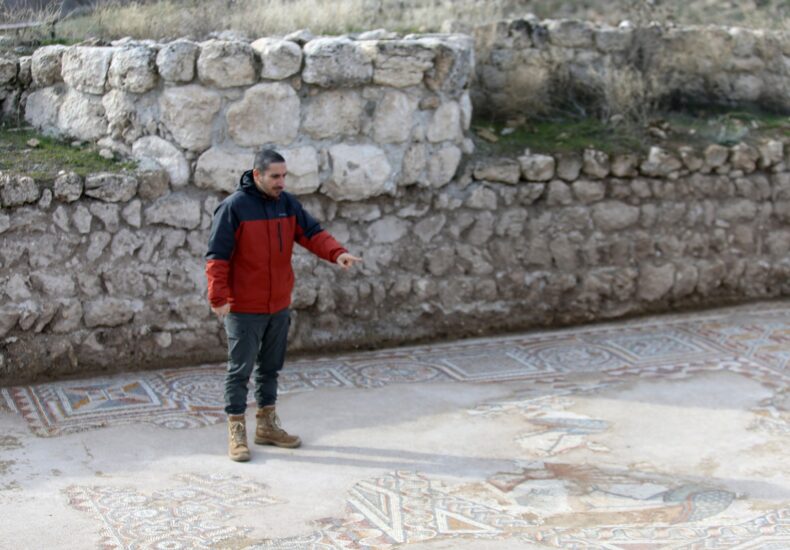
Late Roman Palace Hall with Rare Mosaics Discovered at Hadrianopolis in Northern Anatolia
The moment archaeologists lifted the soil, the floor answered first—a near-intact mosaic field, still crisp enough to read like a visual statement of power. At Hadrianopolis, the ancient city in Karabük’s Eskipazar district in northern Anatolia, excavators have uncovered a mosaic-paved reception hall interpreted as part of a palace-like complex. The Find: A Formal Reception
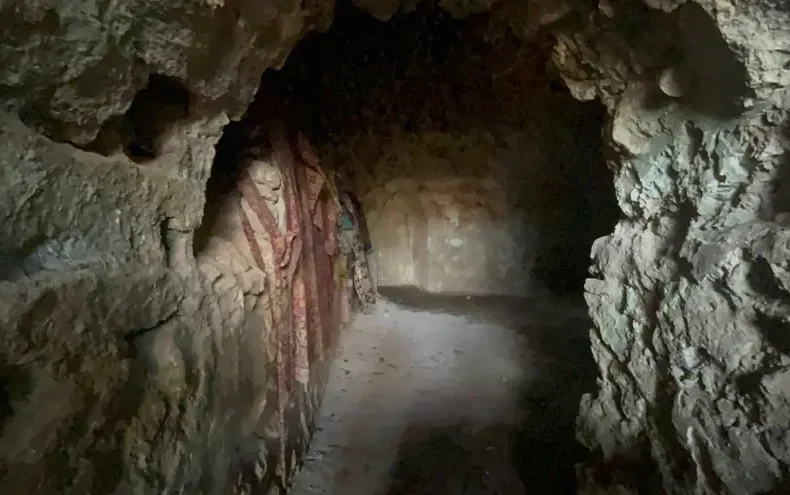
Hikers Stumble Upon a Mysterious Underground Mosque of Unknown Date in Batman’s Gömek Plateau
What began as a routine nature walk in the rugged highlands of Batman turned into one of the region’s most unexpected heritage discoveries in recent years. A group of hikers and local villagers exploring the Gömek Plateau near the dramatic ravine known as Cehennem Deresi happened upon a narrow opening in the rock face. What
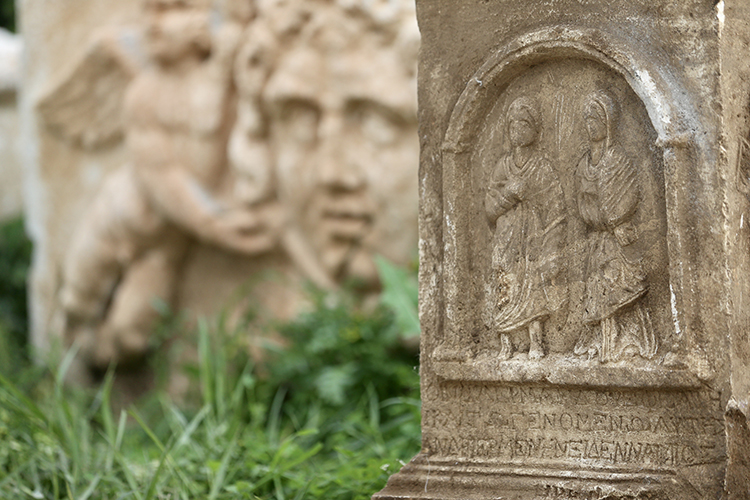
A Shepherd’s Chance Discovery Reveals a Roman Funerary Stele in the Hills of Muğla
High in the rugged hills of Seydikemer in southwestern Türkiye, a local shepherd made a discovery that is now reshaping the archaeological map of the region: a Roman-era funerary stele carved with human figures and detailed epigraphic inscriptions. The monument, resembling the form of a votive altar, has been safely recovered and transported to the
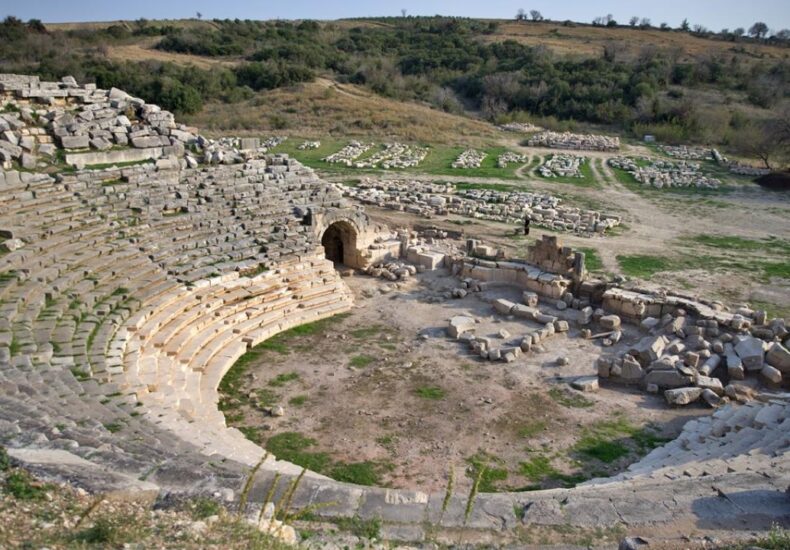
A Rare Find at Kastabala: Philosopher Mask Appears Where It Normally Shouldn’t
In the heart of southern Türkiye, a quiet corner of the ancient city of Kastabala has produced a discovery that breaks with what archaeologists normally expect from Roman stage buildings. A newly uncovered stone mask—depicting an elderly thinker with sharply modelled features—has emerged from the theatre’s façade. And according to the excavation team, philosopher masks

A Newly Uncovered 1,500-Year-Old Roman Dwelling Sheds Light on Daily Life in Ancient Commagene’s City of Perre
The 2025 excavation season at Perre has revealed one of the most informative architectural discoveries yet: a 1,500-year-old domestic complex built during the late Roman occupation of the ancient Commagene region. The find delivers a rare, ground-level view of how households functioned in a city positioned at a vital crossroads of trade and military movement.
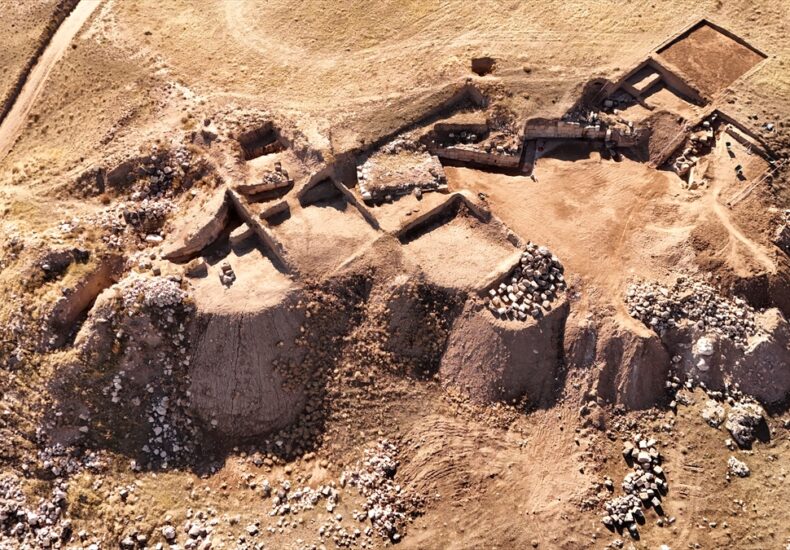
Six Aramaic Inscriptions Unearthed at Zernaki Tepe Reveal Forgotten Parthian Frontier in Eastern Türkiye
Archaeologists have uncovered six new Aramaic inscriptions at Zernaki Tepe, a 3,000-year-old ancient city in Van Province, eastern Türkiye. The discoveries — including three deliberately erased texts — illuminate a turbulent Parthian-era presence in Anatolia and the shifting power struggles between empires that once vied for control of the region. Located in the Yukarı Işıklı

1,500-Year-Old Mosaic Unearthed Beneath a Historic Mill in Midyat May Reveal Early Byzantine Administrator’s Residence
A 1,500-year-old mosaic floor discovered beneath a historic mill in southeastern Türkiye’s Midyat district may have once belonged to an early Byzantine official named Tittos Domestikos.The find marks the first mosaic ever uncovered along the Midyat–Nusaybin corridor, a region better known for its ancient fortresses and caravanserais. The discovery was made in Sivrice (Beyazsu area),

5,200-Year-Old Climate Adaptation Strategies Unearthed at Küllüoba in Türkiye
Archaeologists in Eskişehir, Türkiye, have uncovered remarkable evidence of how early Bronze Age communities adapted to climate challenges more than 5,000 years ago. Excavations at Küllüoba Höyük, a site continuously studied since 1996, reveal that the settlement—dating to 3200–3300 BCE—was not only carefully planned but also strategically designed to withstand harsh environmental conditions. Houses Deliberately
